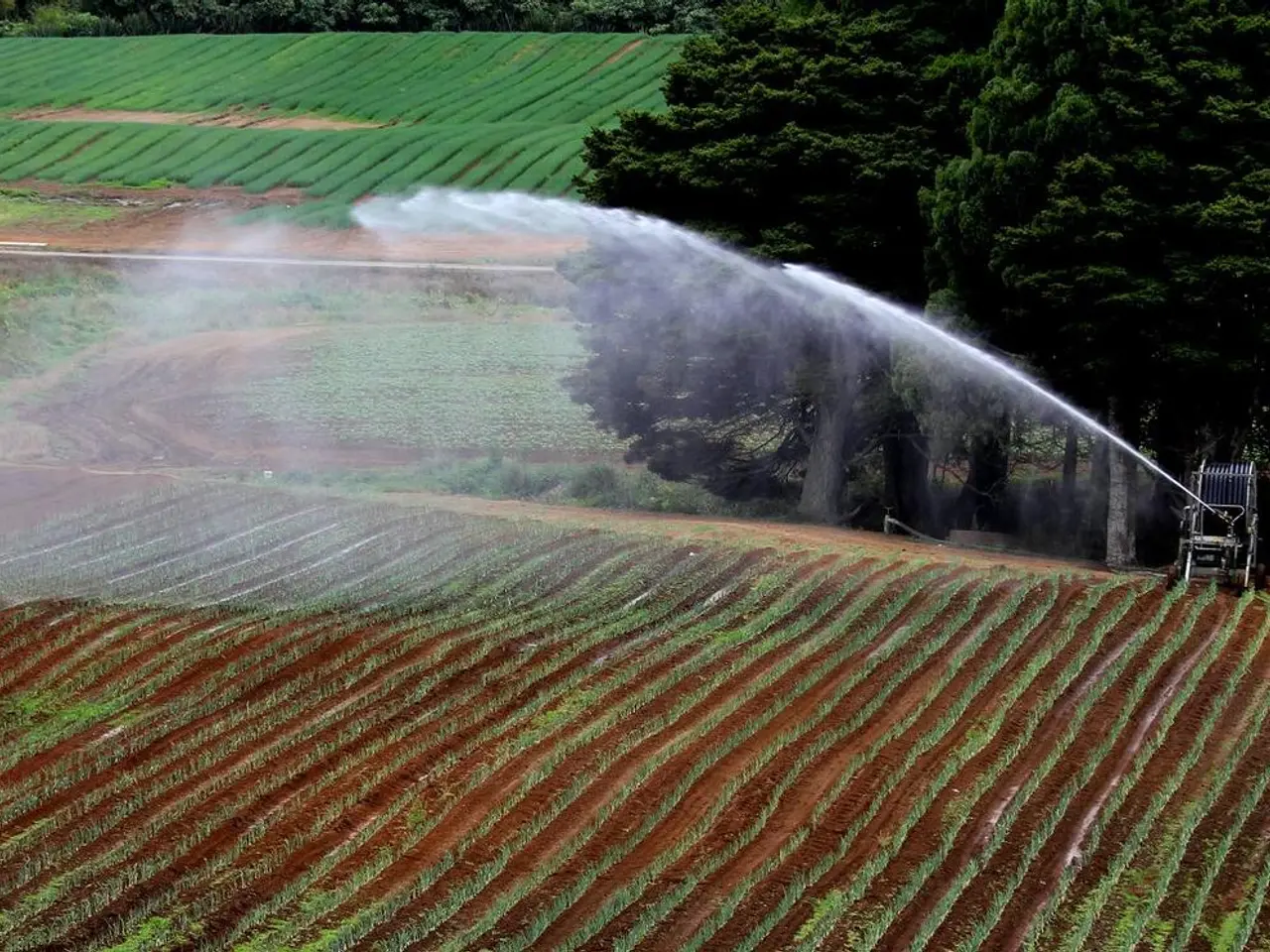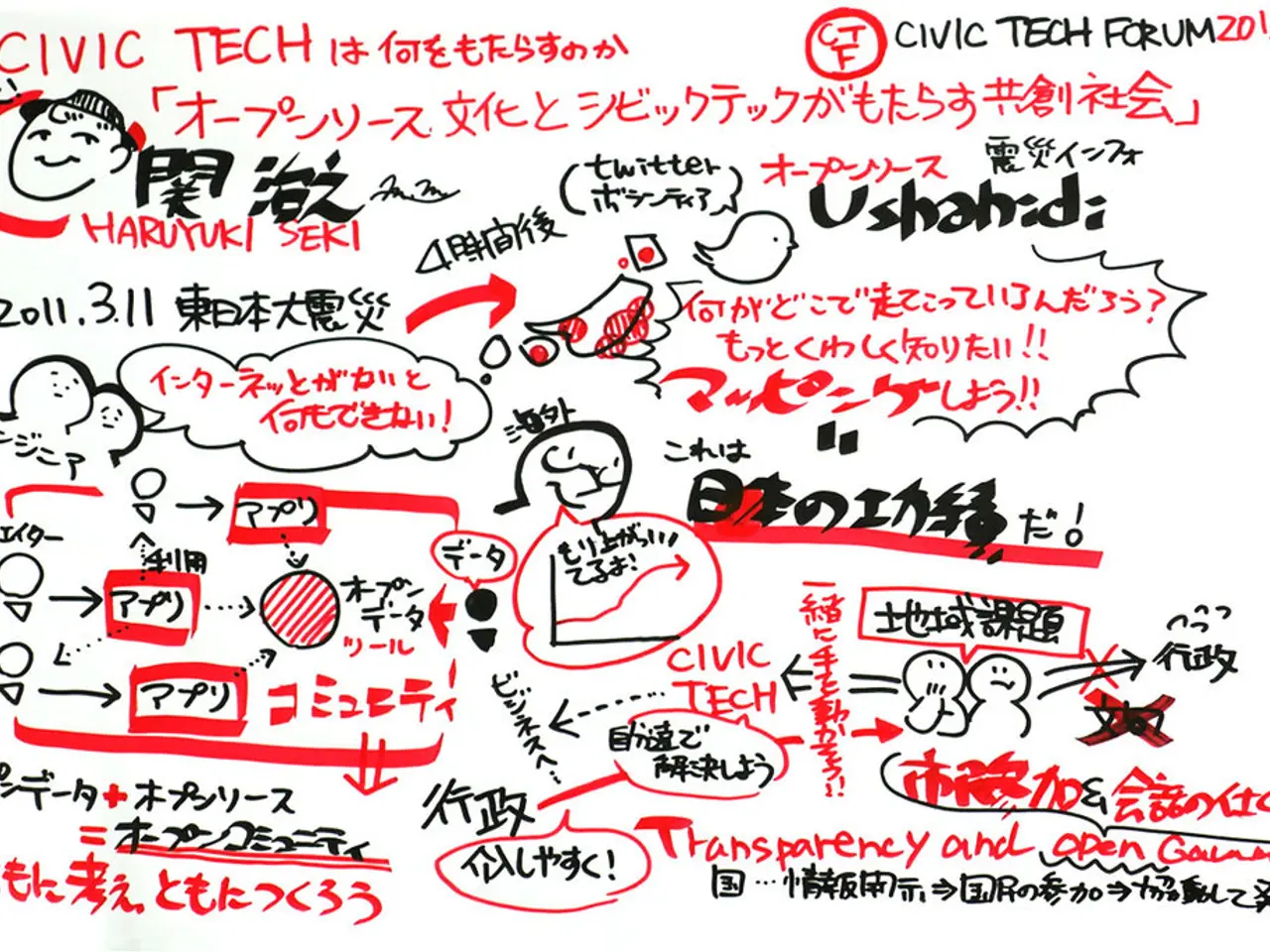The Impact of AI and Technology on the Evolution of Organic Farming Methods
In the world of organic farming, innovation is blooming. AI-equipped robots, blockchain technology, and smart systems are transforming the landscape, making farming more efficient, sustainable, and transparent.
AI-powered robots are taking on labor-intensive tasks, such as planting, weeding, and harvesting, without harming crops or the environment. These robots are also equipped to locate and eliminate weeds, ensuring crops grow undisturbed. Image recognition technology helps identify pests early, while AI-driven climate control systems, energy-efficient greenhouses, and solar-powered equipment are reducing carbon footprints.
Smart irrigation technology, using IoT devices and AI programs, monitors soil moisture levels and weather forecasts, ensuring crops get the exact amount of water they need. This not only saves water but also conserves it for future use. AI can optimize growing conditions and reduce energy use in greenhouses by controlling temperature, humidity, and lighting.
By using AI, farmers can forecast crop demand and adjust planting dates to align with market demands. Drones and sensors, powered by AI, check the health of soil and suggest organic fertilizers. Machine learning algorithms and predictive analytics are AI tools used in organic farming to provide insights on consumer preferences, market trends, and even predict potential hazards such as extreme weather, infections, and pests.
AI-based systems can also recommend companion planting techniques and crop rotations for organic farming, promoting sustainability by using less energy, water, and other resources. Technologies such as blockchain promote consumer trust by increasing transparency in organic farming. Digital traceability systems, combining IoT and blockchain, log every input application, irrigation event, and environmental parameter, enabling fraud-proof certification audits and reducing overhead costs.
The combination of AI and technology with organic farming leads to enhanced efficiency for farmers. By implementing precision farming techniques enabled by AI and IoT, farmers can optimize resource use, improve yield without compromising organic principles, and ensure transparent certification processes. These advancements are not only beneficial for farmers but also for the environment and consumers, as they help preserve soil health, biodiversity, and reduce greenhouse gas emissions.
In essence, AI and integrated digital technologies are indispensable allies in organic farming. They marry traditional ecological practices with modern data insights, boosting productivity, environmental stewardship, and supply chain accountability simultaneously. By embracing these technologies, organic farming is not only surviving but thriving, contributing to a better world.
References: [1] "AI and Technology in Organic Farming: A Review" - Journal of Sustainable Agriculture [2] "The Impact of AI on Organic Farming" - The Organic Farmer Magazine [3] "Smart Farming: The Role of AI in Sustainable Agriculture" - The Guardian [4] "The Future of Organic Farming: AI and Technology" - Forbes [5] "Precision Agriculture: The Role of AI in Organic Farming" - The New York Times
- Farmers are leveraging AI-based systems for precision farming techniques, using machine learning algorithms and predictive analytics to optimize resource use, ensure sustainable growth, and enhance transparency.
2.Integrated digital technologies, such as blockchain, drones, and image recognition, are being utilized in organic farming to promote biodiversity, reduce greenhouse gas emissions, and maintain soil health, all while providing a more transparent and fraud-proof certification process for consumers.




